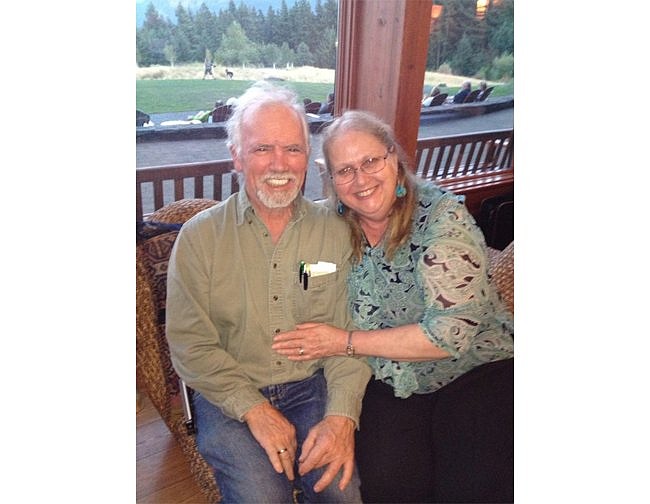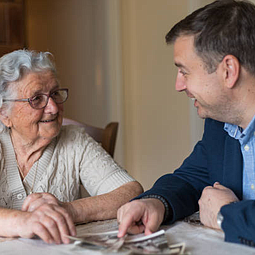Friends and Lovers: A Balancing Act
November 24, 2014 at 6:00 a.m.
When you meet your partner in midlife, you probably have friends who are important to you. It is always interesting to see how your friends react to your new love interest, what they think, and how everyone gets along.
If you have been single for a while and you have a best friend or a close circle of friends, there may be an adjustment period as you incorporate your sweetheart into your life. In truth, there may be a little jealousy or jockeying for position, because your attention is inevitably absorbed by the thrill of your new relationship. In addition, if your friend is the same gender as your lover (or is an ex-partner, for example), you may need to negotiate reasonable boundaries you and your partner can both feel comfortable with.
As things settle down, it can be a challenge to balance your time and attention between your friends and your partner, particularly if one of you is more social than the other. In some cases, you may both enjoy time with the friends each one of you brought into the relationship, or with new friends you have made together. In other situations, it may work best if you and your old buddy have time alone together, doing what you usually do - watching the ball game, going shopping, or rock-climbing - especially if your partner doesn't enjoy the activity or doesn't get along particularly well with your friend.
As we age, friendships become even more vital. Studies have shown that people with positive social connections stay healthier and more intellectually sharp. When the inevitable challenges of our older years come to pass, such as an ailing spouse, the support of friends can make all the difference. So don't let your friendships fade just because you have a new love. On the other hand, if you socialize together with your old friends, find a way to help your partner feel included and welcome. Explain the jokes and the references to old times that may make your sweetie feel excluded. If you play an active role in connecting your friends and your partner (without trying so hard you make people uncomfortable), you may be able to foster a friendship between them.
People do vary greatly in how much social contact they enjoy or crave, and there is nothing right or wrong about having your own preferences (as long as you are in the range between hermit and compulsive socializer). Even a dedicated introvert can benefit from time spent with others outside the relationship. It may be easier for someone who is not naturally comfortable in social settings to make connections in a structured environment, such as a class or a volunteer project. If your partner would rather stay home and do crossword puzzles, though, don't push. Surely you have developed ways of enjoying yourself solo or with other friends during the time you were single.
Talk to each other and plan social activities that work for both of you. Scale down the size of your parties if crowds make your sweetheart break out in a sweat. Offer to accompany your partner to events that really matter, such as the office holiday party or a family gathering, even if you don't particularly enjoy them (and be gracious about it). Have an open conversation about how much time each of you prefers to spend alone, together as a couple, or in the company of others, and then figure out how to accommodate each of your preferences to the best of your ability.
There should be room in your life for friends, old and new, along with your lover.
Northwest authors Jennifer Y. Levy-Peck, PhD, a psychologist, and her husband Charles Peck are write a weekly column on midlife relationships. They are working on a new book, "Magic at Midlife: Your Relationship Roadmap for Romance After 40."
Previous Magic at Midlife Columns:
The Power of Small Caring Behaviors
Reimagining Your Life Together
Memory Loss and the Midlife Couple
Money - One Pot or Separate Accounts?
Conversations About Death for Midlife Couples
The Couple That Laughs Together, Stays Together
Vacation Time! Leave Your Baggage at Home
Your Place or Mine? Moving In Together
How to Help Your Partner Calm Down
Having the “Senior Safer Sex” Conversation





